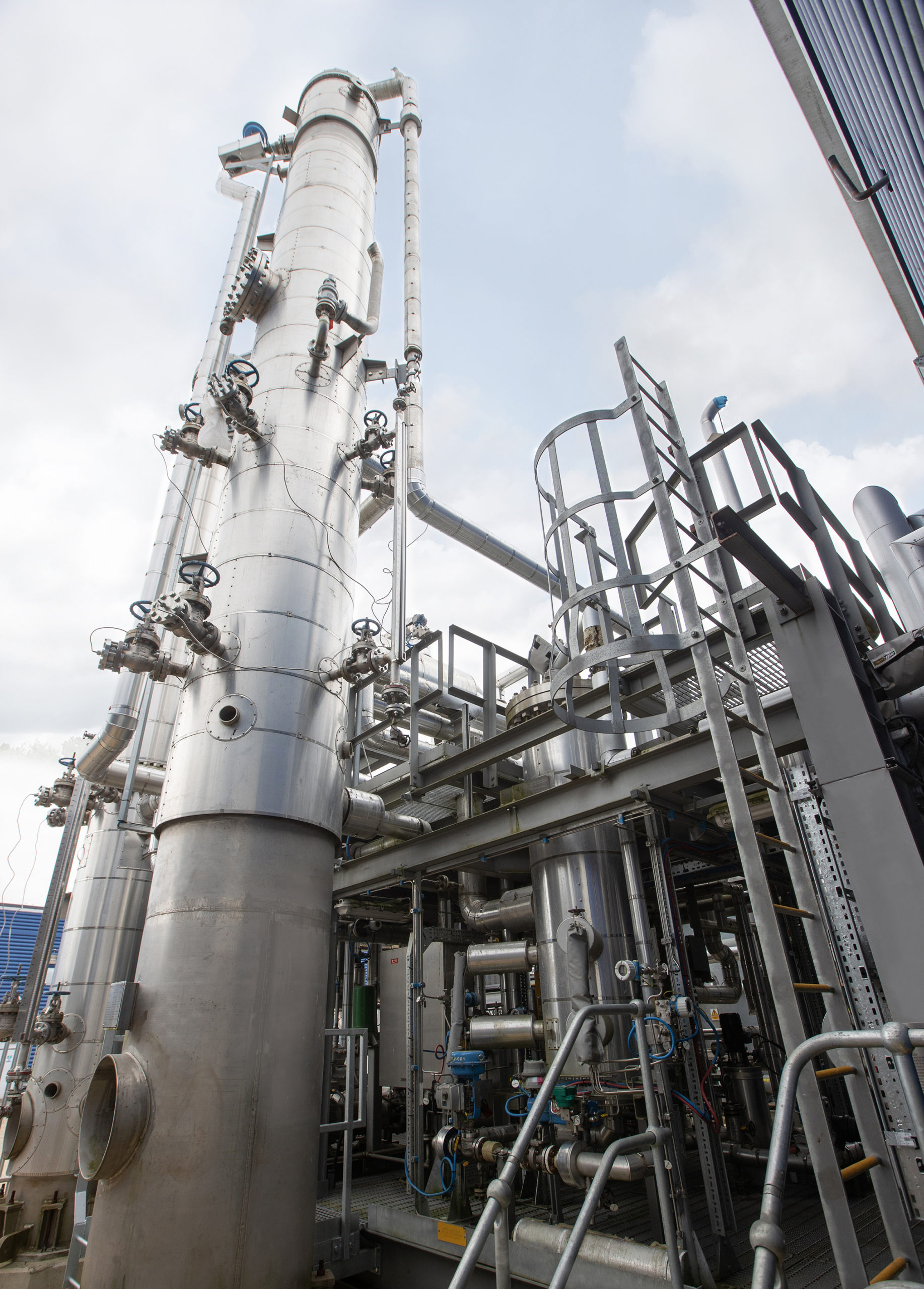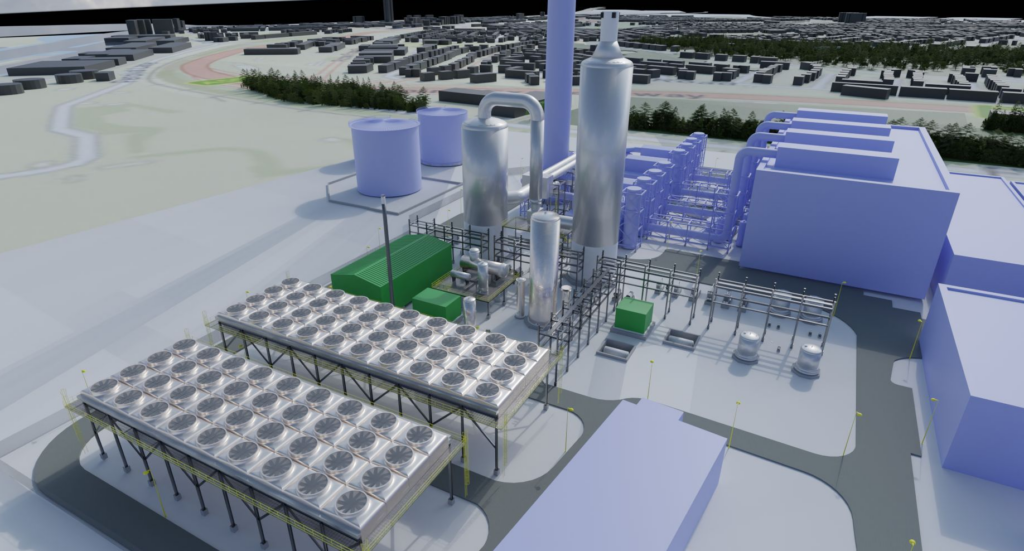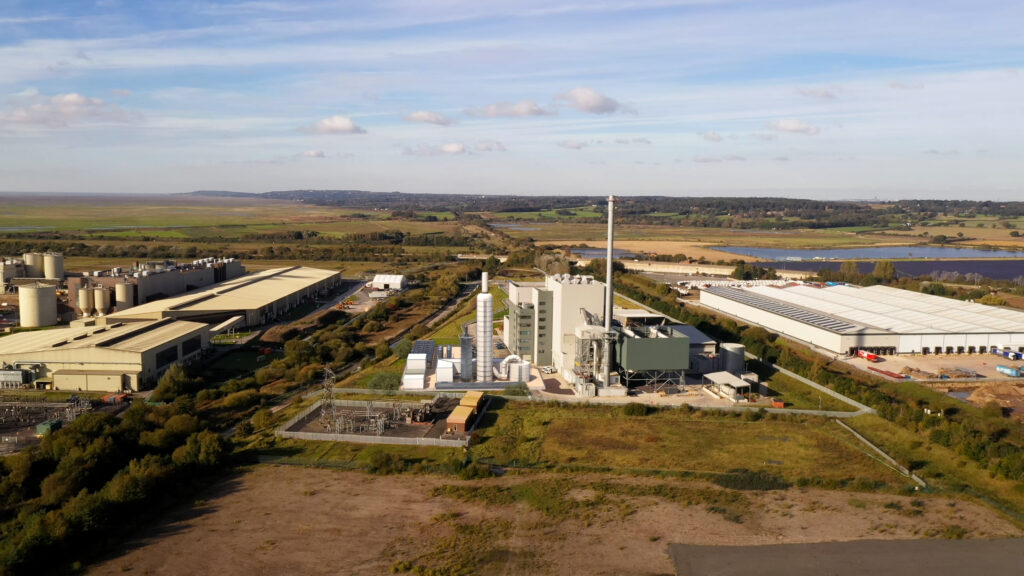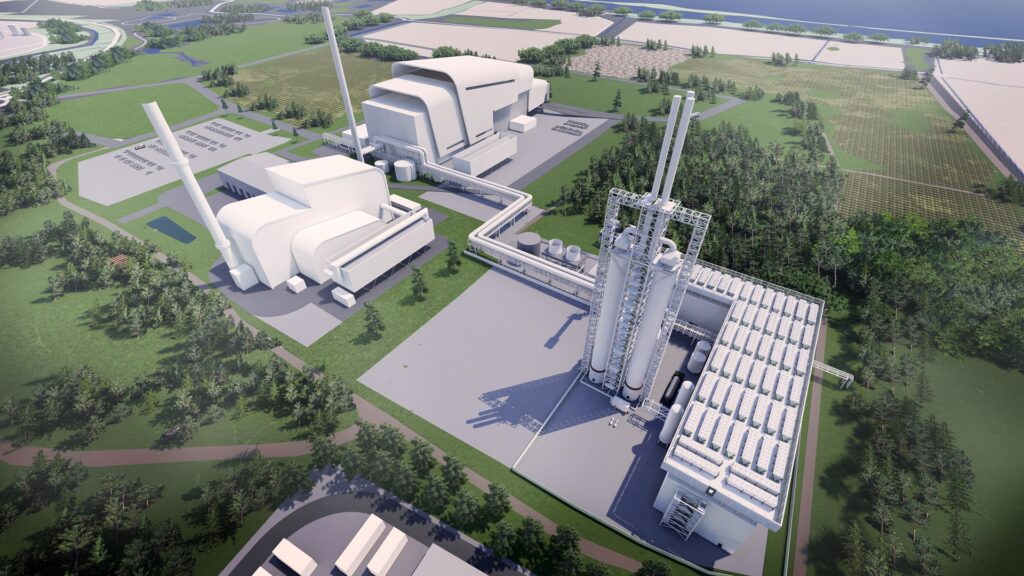Design work for the first plant, which will be located at Ellesmere Port in Cheshire, is underway, ABSL says. Commercial production is scheduled to begin in 2025. Subsequent plants are planned “over the following years”.

Fotowales)
The first plant will convert 133,000 tonnes of municipal waste into biomethane for gas vehicles or biohydrogen for hydrogen vehicles each year. It will use technology developed by ABSL known as RadGas.
The process uses gasification to convert waste into a tar-free synthetic gas, which can then be converted to biomethane.
Greenergy told letsrecycle.com that the municipal waste would be sourced from a mixture of large-scale waste companies, as well as smaller local waste companies and aggregators/brokers. They added that the feedstock will come from the UK.
ABSL claims the five plants would save 800,000 tonnes of carbon dioxide per year, with their output equivalent to powering 5,000 HGVs.
RadGas
Founded in March 2019 and based in Swindon, ABSL describes itself as a private company backed by investment funds and high net worth individuals, supported with external funding from the government.
Nathan Burkey, executive chairman of ABSL, said in a statement today (11 November): “Today’s announcement enables ABSL to accelerate significantly the speed and scale of the deployment of our RadGas technology.
“The partnership brings together cutting-edge technology with the experience of large-scale fuel production and distribution to produce low carbon fuels for transport critical to achieving Net Zero.”
Development fuels
The fuels will qualify as development fuels under the UK’s Renewable Transport Fuel Obligation (RTFO), ABSL says. RTFO legislation requires that transportation fuels must contain a growing percentage of renewable development fuels, defined as new types of advanced biofuels made from sustainable wastes. The content target was introduced at 0.1% of total fuel by volume in 2019 and continues to increase each year to 2.8% by 2032.
We are continuing to progress innovative waste-based fuel projects that divert waste from landfill or incineration
– Christian Flach, Greenergy CEO
Christian Flach, Greenergy CEO, said: “We are continuing to progress innovative waste-based fuel projects that divert waste from landfill or incineration and create low carbon fuels for the transport sector at scale.
“This agreement is a further expansion of our leading renewables business and will enable us to continue to support our customers through the energy transition.”
Describing itself as “Europe’s largest manufacturer of biodiesel from waste”, Greenergy operates three waste-to-biodiesel plants. Two are located on the east coast of England, it says, while the company operates a third in Amsterdam.
Ellesmere Port
Existing energy from waste facilities in the region of Ellesmere Port include Veolia’s 100,000 tonne-per-year capacity hazardous waste incinerator and Viridor’s enormous Runcorn plant, at 1.1 million tonnes-per-year the largest in the UK.
Biffa, American waste management company Covanta and Macquarie’s Green Investment Group achieved financial close on their proposed 400,000 tonne-per-year capacity Protos facility in Cheshire last December (see letsrecycle.com story).










Subscribe for free